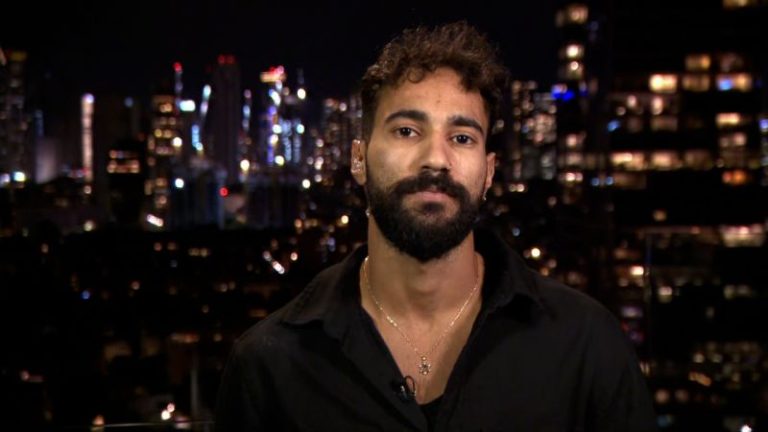Editor’s Note: This story contains graphic and disturbing accounts of sexual violence. It was originally published on January 4, 2024, and updated on April 10, 2024, with additional information concerning the account of an attack on a kibbutz.
Five men came out of the van and captured a woman, ripping off her clothes as they formed a circle around her. One raped her and killed her with a knife. Then he raped her again, said Raz Cohen, a survivor of Hamas’ murderous rampage in Israel on October 7.
Israeli police are documenting cases of rape and sexual violence committed as Hamas fighters burst into Israel from Gaza, attacking the music festival and kibbutz communities near the border. About 1,200 people were killed and more than 200 taken hostage in the attacks that were condemned globally and led to a massive Israeli military response. Israel’s subsequent war on Hamas in Gaza has claimed the lives of more than 22,000 Palestinians, according to the Hamas-controlled Ministry of Health.
But the United Nations and human rights organizations were slow to denounce the reports of rape and mutilation against Israelis – mostly girls and women but also men. And Hamas has denied its fighters committed sexual violence during the coordinated attacks.
The UN agency UN Women released a statement in December condemning the attacks and saying it was “alarmed by the numerous accounts of gender-based atrocities and sexual violence during those attacks.”
“It’s a fact,” Cohen said. “It’s what happened.”
Cohen said a white van pulled up about 30 meters from his hiding spot and five men in civilian clothes got out.
“They catch a girl and they started to pull her clothes off,” he said. “After they pulled the clothes off, one of them started to rape her. It was something like 40 seconds. After he raped her, he take a knife and kill her, murder her. After he did it, he continued to rape the dead body.”
The other men around the victim did not seem angry, Cohen said.
“They always laugh. I think it was for fun. They murdered a lot of people for fun.”
Along with the sounds of apparent mirth, Cohen previously told The New York Times he could recall the terror of the woman he saw killed. “I still remember her voice, screams without words,” he said.
Cohen, 24, says he ran across the open desert field to escape the mass arrival of attackers. He described feeling like he was on a firing range – with nowhere to hide and bullets coming from left, right and behind.
“I’ve run in the open field and I was very close to some girl,” he said. “When I passed her … I heard that she fell on the ground. I’m looking back … and I saw that she got shot in the head … I looked at the girl but I can’t help her so I keep running away until I get to the bush.”
Cohen had to wait nine hours in the bush for rescuers to arrive, he said.
In November, Israeli Police Superintendent Dudi Katz said officers had already collected more than 1,000 statements and more than 60,000 video clips related to the attacks that included multiple accounts from people who reported seeing women raped.
He added that investigators did not have firsthand testimony, and it was not clear whether any rape victims survived.
Rami Shmuel, an organizer of the music festival attended by Cohen, previously said he saw female victims with no clothes as he made his escape, and has no doubts about what happened.
“Her pants are pulled down toward her knees and there’s a bullet wound on the back side of her neck near her head,” he recounted. “There’s a puddle of blood around her head and there’s remains of semen on the lower part of her back.”
In response to subsequent reports raising questions about the account – specifically about the location, which he identified as Kibbutz Be’eri – the paramedic referred questions to the IDF. A spokesman pointed to a report from the United Nations that found grounds to believe accounts of rape and gang rape in the October 7 attacks, and added: “In the case in question, the combat paramedic shared his personal experience when he arrived at the scene of the massacre. Considering the privacy of the victims and their families, it is not possible to provide more information about the case.”
Cochav Elkayam-Levy, a human rights law expert at Hebrew University in Jerusalem, has formed a civil commission with colleagues to document evidence of the attacks. She was determined that the atrocities should not be overlooked or forgotten, especially because the victims are unable to speak for themselves, she said.

